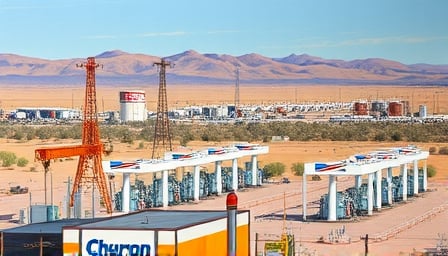Chevron’s Dividend Hike Masks a Bleak Reality
Chevron Corp’s latest move to boost its dividend payment by 7.95% to $6.52 per share is a clear attempt to placate its shareholders, but it’s a short-sighted strategy that ignores the company’s deeper structural issues. The $11.8 billion payout is a staggering sum that will further drain the company’s resources, leaving it vulnerable to future economic downturns.
The company’s decision to cut nearly 800 jobs in Texas is a stark reminder of the devastating impact of its cost-cutting measures. This move is part of a broader plan to reduce its global workforce by up to 20%, a clear indication that Chevron is struggling to adapt to the changing energy landscape. The fact that the company is terminating its contracts in Venezuela but retaining direct staff raises questions about its commitment to responsible business practices.
The US government’s limited license allowing Chevron to maintain its assets in Venezuela is a tacit acknowledgment of the company’s struggles in the country. The restrictions on oil production are a clear indication that the government is not willing to let Chevron off the hook entirely. Meanwhile, Exxon Mobil’s shares have slipped despite predicting victory in a $1 trillion oil field dispute with Chevron, a clear indication that the company’s future is far from certain.
The Swiss National Bank’s decision to sell its entire stake in Chevron due to environmental concerns is a damning indictment of the company’s track record on sustainability. It’s a clear signal that investors are increasingly wary of companies that prioritize profits over people and the planet.
The Writing is on the Wall
Chevron’s dividend hike may provide a temporary boost to its stock price, but it’s a Band-Aid solution that ignores the company’s deeper structural issues. The writing is on the wall: Chevron’s business model is unsustainable, and its shareholders are taking a huge risk by betting on the company’s future. It remains to be seen whether Chevron can adapt to the changing energy landscape and prioritize sustainability over profits.
